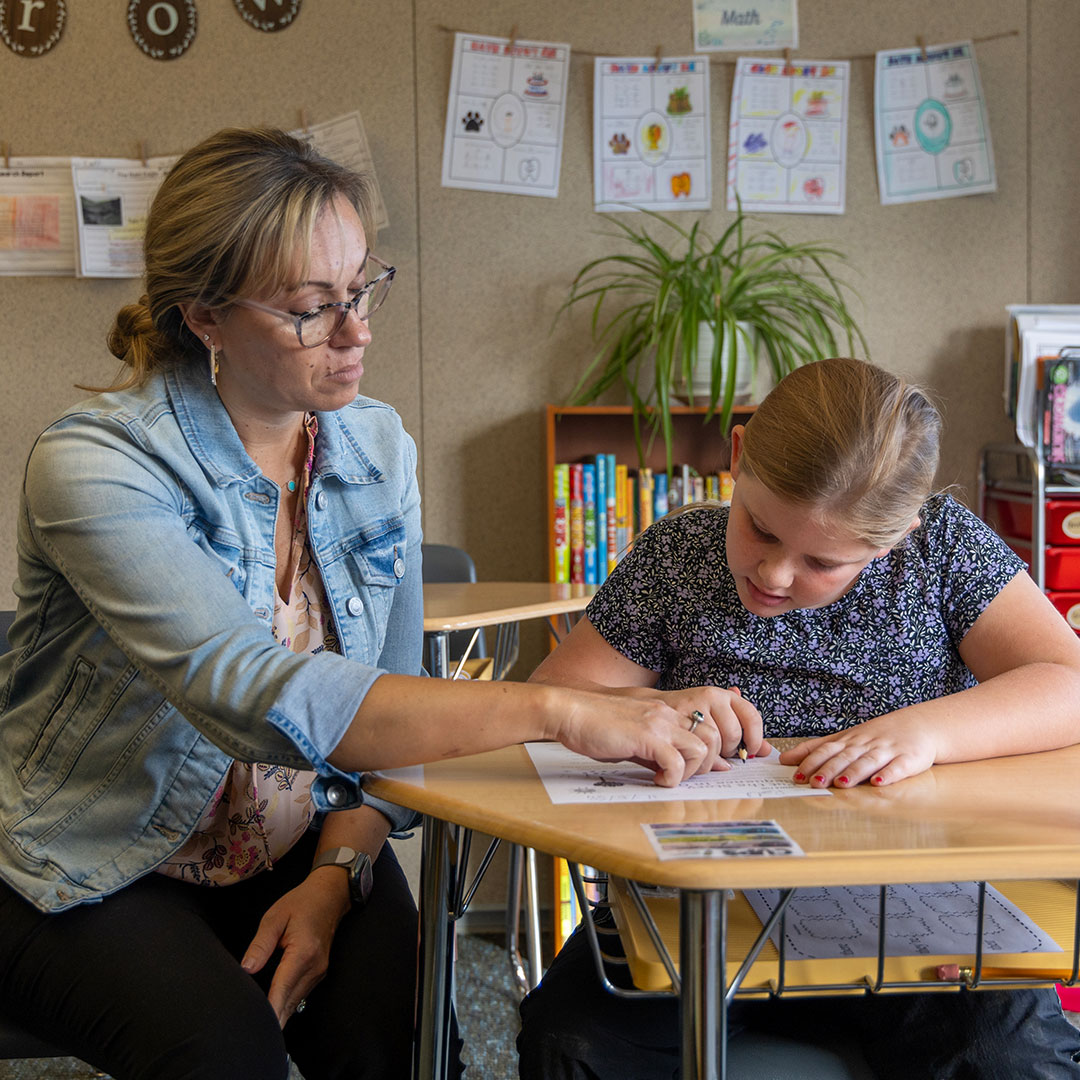
Every day, students and adults alike rely on a set of skills we rarely stop to think about—skills many don’t even know by name. These executive skills quietly shape how we get ready in the morning, keep track of assignments, manage emotions, and follow through on responsibilities big and small.
While these skills emerge as children grow, not every student develops them at the same pace. For neurodivergent individuals and students with learning differences, developing executive skills may take longer and often requires intentional strategies to strengthen. At The Janus School, we know how pivotal these skills are—not just for success in the classroom, but for building confidence, independence, and resilience in life. That’s why executive skills instruction and guidance are integrated into everything we do. In this post, we’ll share why they matter, how to recognize when a child may need extra support, and provide practical strategies for building these essential tools at home and at school.
What are Executive Skills?
Executive skills, also known collectively as executive function, are sometimes described as the “management system of the brain.” They enable us to manage tasks, stay focused, and carry out responsibilities across nearly every part of daily life.
One way to think about them is through the analogy of a business executive. Just as an executive must coordinate people, tasks, and deadlines to keep an organization running smoothly, our brains use executive skills to manage the many moving parts of daily life, from remembering instructions and shifting between tasks to controlling impulses and persisting through challenges.
Some of the most important executive skills students rely on every day include:
• Working memory: Holding information long enough to use it, like recalling multi-step directions in class.
• Organization and planning: Keeping track of materials, assignments, and deadlines, and knowing how to break larger projects into smaller steps.
• Time management: Estimating how long a task will take and using time wisely.
• Impulse control and self-regulation: Stopping to think before acting and managing strong emotions.
• Flexible thinking: Adjusting when routines shift or unexpected challenges come up.
In school, these skills often work together. For instance, a student reading a passage from a text must not only decode words but also remember what they’ve read (working memory), resist distractions (impulse control), manage their time (time management), and organize their thoughts before writing a response (organization). Without strong executive skills, learning can feel overwhelming—much like trying to assemble furniture with instructions in a foreign language.
How Do Executive Skills Develop?
Like all skills, executive skills develop gradually over time. They begin forming in infancy and continue strengthening through childhood, adolescence, and even into young adulthood. The brain’s frontal lobe, which is the area most responsible for executive function, undergoes a surge in development around age 18, but it does not fully mature until about age 25 in neurotypical individuals. For neurodivergent individuals, this process may take even longer, sometimes into the late 20s or around age 30.
This uneven developmental timeline explains why children of the same age can exhibit significant differences in independence, organization, and self-control. Research shows that children with ADHD, for example, may experience as much as a 30% delay in frontal lobe development. In practice, this means a 12-year-old with ADHD might function more like a 9-year-old in areas such as planning, time management, or impulse control.
Other factors can also influence how executive skills develop. For example, students who are neurodivergent or who experience ADHD, autism spectrum disorder (ASD), anxiety, depression, or the effects of stress or trauma may find that these skills take longer to strengthen. This can show up in different ways, such as difficulty holding information in mind, making thoughtful decisions, managing emotions, or planning ahead.
For parents and educators, it’s important to remember that these differences are not a matter of laziness or lack of effort. They reflect a developmental need. Recognizing executive skills as something that is still “under construction” helps reframe the struggles children may face. With the right tools, strategies, and supports, students can strengthen these skills and grow in confidence and independence.
Signs a Student May Need Support
Executive skill challenges can sometimes be subtle—and easy to misinterpret. Parents and teachers may notice:
• Frequent distractibility or difficulty re-engaging after a distraction
• Struggles with getting started or persisting on tasks
• Trouble shifting from one task to another
• Difficulty self-monitoring progress or behavior
Left unaddressed, these challenges can compound over time. A student who has trouble organizing materials in middle school, for example, may later struggle to manage the workload and deadlines of high school, leading to frustration and dips in self-esteem.
Another common misconception is that students with executive function difficulties “look like” they should be able to keep up with their peers. Because they often act and interact just like other students, their challenges can be misinterpreted as disinterest, lack of motivation, or discipline issues., poor attitude, or behavior problems. In reality, the gap lies in brain development, not motivation. Recognizing this difference helps families and educators respond with empathy and support rather than frustration.

What Support Looks Like at Janus
At The Janus School, supporting executive skills is not a single class or program—it’s woven into every part of the student experience. Teachers act as an “external prefrontal cortex,” building structures and strategies that students can eventually internalize for themselves.
Some of the supports students experience every day include:
• Small class sizes that allow for personalized instruction and direct feedback
• Predictable routines that create stability and reduce stress
• Labeled spaces and visual cues that reinforce organization
• The Janus-designed planner, monitored weekly by teachers to positively reinforce goal-setting and accountability
• Movement breaks and interactive lessons to sustain attention
• One-on-one tutorial sessions to work toward individual goals
At the Middle Division level, every student participates in a year-long Executive Skills Workshop class, a unique 30-minute, full-year course taught on a three-year cycle that ensures 6th-, 7th-, and 8th-graders all receive direct instruction in these skills. In the Upper Division, all students take Success Classes each year, where executive skills are applied to real-world lessons, research, and projects. By senior year, students bring their skills into focus through internships that prepare them for life after graduation.
The impact of this approach is transformative and is often life-changing for students and families. As students grow their executive skills, they gain confidence and independence, showing greater success in managing time, materials, and emotions. Importantly, mistakes are treated not as failures but as opportunities for growth. Students learn to see the cause-and-effect of their actions in a supportive context, which helps them build resilience rather than discouragement.
How Can Parents Support Executive Skills at Home?
Families also play an essential role in helping students practice and develop executive skills. Even small, consistent routines can make a big difference:
• Daily backpack/binder check: Just five minutes each evening can dramatically improve organization and communication.
• Weekly “reset” meeting: Review schedules, due dates, and activities as a family to bring calm and predictability to the week.
• Bedtime routines and screen limits: Support healthy sleep and self-regulation.
• External memory tools: Use whiteboards, visual lists, chore charts, or shared calendars to provide reminders.
• Checklists and templates: Reduce decision fatigue and provide structure for recurring tasks.
• Reflexive questioning: Instead of scolding or nagging, ask questions that encourage them to think through next steps and take ownership.
Parents often ask, “How much help is too much?” The key is balance. The concept of scaffolding, which means providing just enough structure while encouraging independence, is critical. For example, a parent might help set up a checklist for packing a backpack, but then step back so the student can use it independently.
Where to Turn for More Support
Building executive skills takes time, and no family has to walk the journey alone. Respected experts such as Peg Dawson and Russell Barkley have developed evidence-based resources, and their research continues to shape how schools like Janus approach executive skill development.
Community can also be a powerful resource. At The Janus School, our Executive Skills Workshops are designed for parents, educators, and community members—whether or not their child is enrolled at Janus. These sessions, which we offer several times per year, provide practical, research-backed strategies that participants can implement immediately. Many families also share that workshops give them a sense of encouragement, knowing they are not alone in facing these challenges.
Building Skills for Lifelong Success
Executive skills are not just about getting through homework or making it to class on time—they are the foundation for independence, confidence, and lifelong success. By combining structured approaches at school with simple, consistent routines at home, students can strengthen these essential skills and discover greater confidence in their abilities.
At The Janus School, the only independent K-12 day school in Central Pennsylvania dedicated to the needs of students with learning differences, we’re proud to walk alongside students and families on the journey of fostering executive skills—removing barriers, building strategies, and empowering every learner to thrive in school and beyond. If you believe your child may be struggling with a learning disability or difference, get in touch. Our team would love to connect with you.
Information and stats shared sourced from the following:
www.russellbarkley.org
www.ADHDLectures.org
drbarkley@russellbarkley.org